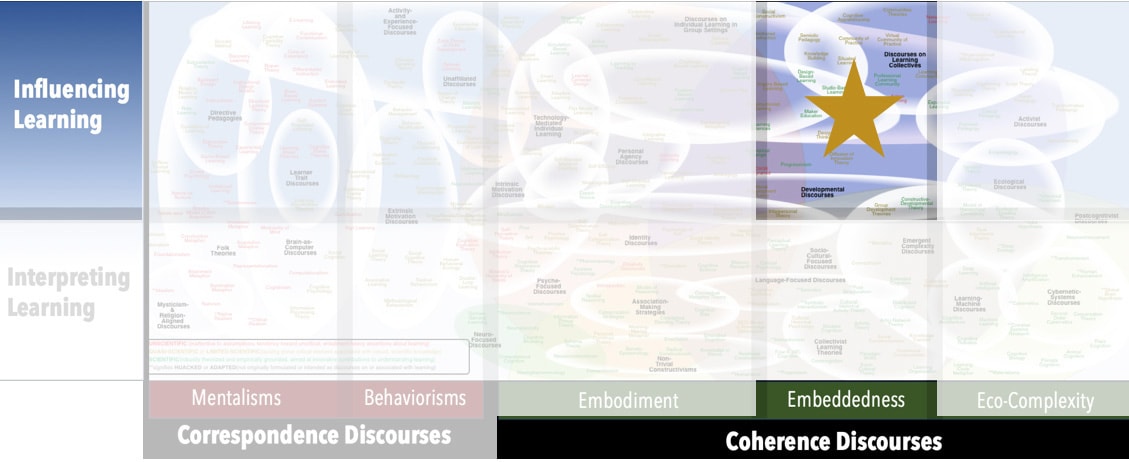Focus
Individual construing knowledge in interaction with othersPrincipal Metaphors
- Knowledge is … social constructs
- Knowing is … adequate social functioning
- Learner is … a participant
- Learning is … integrating social constructs
- Teaching is … formatting collective engagements
Originated
1990sSynopsis
Social Constructivism is aligned with Non-Trivial Constructivisms, giving particular attention to interactions with others. Those interactions are seen as integral to understanding personal construals and development. Social Constructivism shares Social Constructionism’s interest in jointly construed understandings of the world, but it is more focused on individual learning than in social constructs. Associated discourses include:- Dialectical Constructivism – Non-Trivial Constructivims that emphasize the influence of interactions (with other learners and one’s environment) in learning
Commentary
Despite frequent and explicit comments to distinguish Social Constructivism from Social Constructionism, discussions of the former tend to be pulled toward the latter. Some assert that this tendency is rooted in shallow readings of Non-Trivial Constructivisms, which in no way deny or ignore the roles of others and culture in the one’s construals. That is, Social Constructivism is not really an extension of Non-Trivial Constructivisms, as is often asserted by its proponents, but an awkward conflation of already-compatible theories that are concerned with different levels of analysis (i.e., personal, social, and cultural). Support for this point can be found in the fact that explications of Social Constructivism often say much more about how to teach than about the complex dynamics of learning.Authors and/or Prominent Influences
DiffuseStatus as a Theory of Learning
Social Constructivism is not a theory of learning, although it draws on principles from well-established scientific theories of learning.Status as a Theory of Teaching
Social Constructivism is perhaps better regarded as a theory of teaching than a theory of learning. Typically, explications of the theory include considerably more information on classroom practices (e.g., group discussion as a core teaching practice; strategies of group-based learning) than on what learning is or how learning happens.Status as a Scientific Theory
There appears to be a modest research program built around Social Constructivism. However, it tends to lean on the empirical bases of its close relatives.Subdiscourses:
- Dialectical Constructivism
Map Location

Please cite this article as:
Davis, B., & Francis, K. (2022). “Social Constructivism” in Discourses on Learning in Education. https://learningdiscourses.com.
⇦ Back to Map
⇦ Back to List
